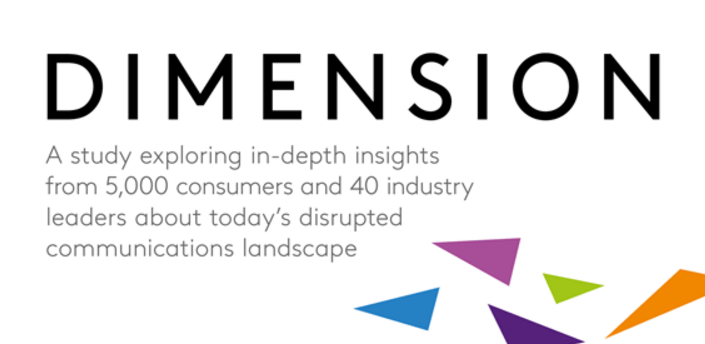
Digital advertising industry growth at risk without comparable global measurement standards, says Kantar Media
New research released by Kantar Media today warns that, if the advertising industry doesn’t find a way to measure performance accurately and consistently, Proctor & Gamble’s threat [1] to pull spend from digital advertising will be just the tip of the iceberg.
DIMENSION, a new international study into consumer and industry attitudes to advertising by Kantar Media, has shown that a lack of consistent, comparable measures to understand the audience and gauge the effectiveness of advertising is a significant concern for those working in the communications planning ecosystem. Unless consistent metrics across traditional and digital channels are developed, industry growth will be put at risk. In parallel, over-targeting threatens to alienate consumers who, broadly, have no fundamental problem with advertising, and damaging their relationships with brands.
DIMENSION shows that:
• Brands are unable to consistently measure the impact and effectiveness advertising from channel to channel, and from market to market, which risks damaging consumer relationships.
• Consumers are generally receptive to advertising (with 68% of respondents saying they actively like or accept being advertised to) but over-targeting on digital platforms threatens to undermine brand marketing efforts (71% of respondents claimed to see the same ads over and over again, finding them too repetitive).
• Industry leaders also recognise the need to access data within walled gardens if they are to truly build effective consumer-centric communication plans that are comparable across all channels.
Andy Brown, CEO & Chairman, Kantar Media, said: “Without the availability of consistent, comparable metrics, brands and the advertising industry cannot accurately measure their audience, the impact and effectiveness of their marketing and the accuracy of individual campaigns. It’s a collective challenge for our industry: unless we work together to solve this problem, the growth of the sector will be hindered.”
DIMENSION shows that, despite frequent negative headlines, 68% of connected adults either like or tolerate advertising, while 73% of consumers think that advertisers are doing a better job of reaching them now than they did in the past. However, consumers feel significantly more positive about advertising on traditional platforms, such as TV and print, than they do about online formats, despite technology advances. This is due in no small part to blunt, repetitive targeting driven by brands’ inability to understand how their ads are being deployed on digital platforms.
Brown concluded: “So long as standards differ between markets and across media forms no one wins. Brands can’t track spend, agencies can’t deliver the best solutions for their clients, and consumers’ openness to marketing will diminish if the channels used to reach them are not used intelligently. That collective challenge cannot be solved without consistent, comparable metrics across every channel and every major advertising market.”


